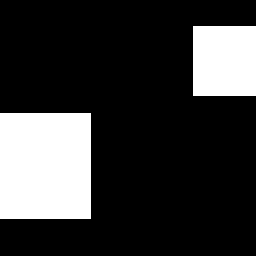The ZuSE-KI-Mobil AI Accelerator SoC
Overview and a Functional Safety Perspective
- verfasst von
- Fabian Kempf, Julian Hoefer, Tanja Harbaum, Juergen Becker, Nael Fasfous, Alexander Frickenstein, Hans Joerg Voegel, Simon Friedrich, Robert Wittig, Emil Matúš, Gerhard Fettweis, Matthias Lueders, Holger Blume, Jens Benndorf, Darius Grantz, Martin Zeller, Dietmar Engelke, Karl Heinz Eickel
- Abstract
ZuSE-KI-Mobil (ZuKIMo) is a nationally funded research project, currently in its intermediate stage. The goal of the ZuKIMo project is to develop a new System-on-Chip (SoC) platform and corresponding ecosystem to enable efficient Artificial Intelligence (AI) applications with specific requirements. With ZuKIMo, we specifically target applications from the mobility domain, i.e. autonomous vehicles and drones. The initial ecosystem is built by a consortium consisting of seven partners from German academia and industry. We develop the SoC platform and its ecosystem around a novel AI accelerator design. The customizable accelerator is conceived from scratch to fulfill the functional and non-functional requirements derived from the ambitious use cases. A tape-out in 22 nm FDX-technology is planned in 2023. Apart from the System-on-Chip hardware design itself, the ZuKIMo ecosystem has the objective of providing software tooling for easy deployment of new use cases and hardware-CNN co-design. Furthermore, AI accelerators in safety-critical applications like our mobility use cases, necessitate the fulfillment of safety requirements. Therefore, we investigate new design methodologies for fault analysis of Deep Neural Networks (DNNs) and introduce our new redundancy mechanism for AI accelerators.
- Organisationseinheit(en)
-
Fachgebiet Architekturen und Systeme
- Externe Organisation(en)
-
Karlsruher Institut für Technologie (KIT)
Bayerische Motoren Werke AG
Technische Universität Dresden
Dream Chip Technologies GmbH
- Typ
- Aufsatz in Konferenzband
- Publikationsdatum
- 2023
- Publikationsstatus
- Veröffentlicht
- Peer-reviewed
- Ja
- ASJC Scopus Sachgebiete
- Allgemeiner Maschinenbau
- Elektronische Version(en)
-
https://doi.org/10.23919/DATE56975.2023.10137257 (Zugang:
Geschlossen)


